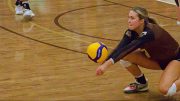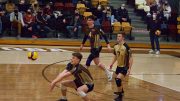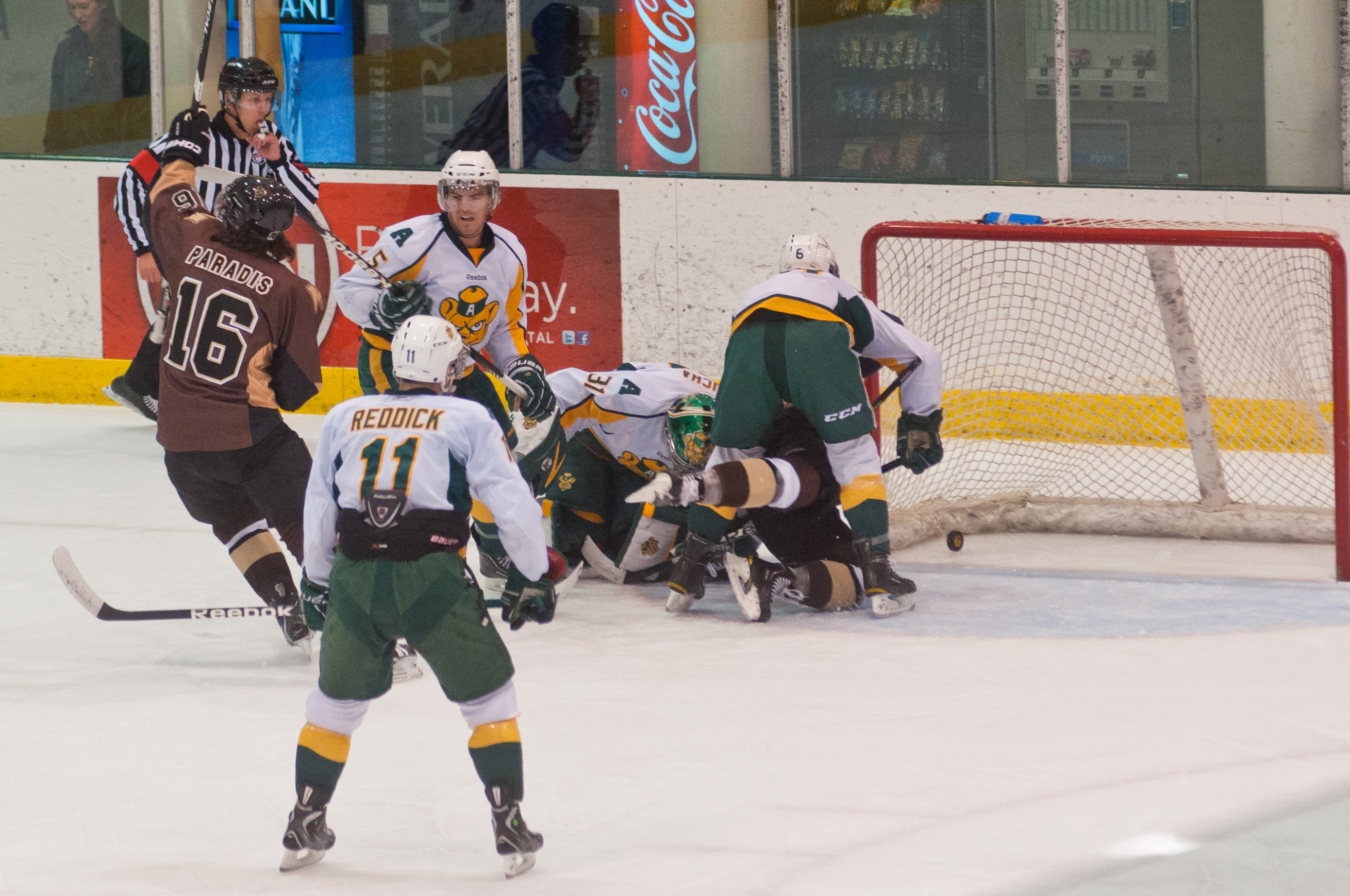While most Canadian university students have turned their attention to final exams and term papers, a few of their peers have something else in mind. A select few young men have signed contracts to become professional hockey players.
In recent weeks, Canada West — or more specifically the University of Alberta Golden Bears men’s hockey team — has seen multiple high-profile players sign professional deals, many of whom still have years of U Sports eligibility left.
The biggest splash came courtesy of Alberta forward Luke Philp who is expected to take his talents to the NHL next year.
On March 19, TSN’s Bob McKenzie reported the Calgary Flames were close to signing Philp to an entry-level contract. It was later announced by the club it signed the Canmore-born forward to a two-year deal.
The signing came as no surprise. Philp had garnered NHL buzz for months prior, recording 45 points — 21 goals and 24 assists — in 24 games for Alberta this year. He goes to the Flames a complete player, with high offensive upside and plenty of potential left to unlock.
Philp was not the only Golden Bears player to sign a pro deal in March. Defenders Jason Fram and Graeme Craig signed with the KHL’s Kunlun Red Star and AHL’s Manitoba Moose, respectively, while goaltender Zach Sawchenko signed with the AHL’s San Jose Barracuda.
The Moose also tapped some local talent, bringing U of M Bisons netminder Byron Spriggs on board with an amateur tryout agreement. He was released two days later without seeing any time in the lineup.
The inclusion of more U Sports players in the professional ranks shows a continued trend of pro teams mining Canadian universities for developed talent.
The Flames already boast former Golden Bears centre Derek Ryan, while former University of Prince Edward Island Panther Joel Ward recently finished his NHL career with the San Jose Sharks after a decade in the league.
Many professional hockey teams have begun to see the benefits in signing players from Canadian universities, and as more players have success in these leagues the spotlight may finally turn to a valuable hidden gem in Canadian sports.
U Sports has the benefit of having a player base aged 21 to 25 years old, allowing them to develop their game amongst men, while NCAA players — and more specifically major junior players — largely leave their leagues at younger ages.
Signing a U Sports player lands a team a fully developed talent, right around their prime — generally 23 to 26 years old — who may already have some professional experience.
The aforementioned Craig spent some time in the AHL prior to joining the Golden Bears, while Manitoba’s Brett Stovin played for the Missouri Mavericks of the ECHL before committing to the Bisons.
So instead of spending years hoping a junior player will develop into a professional calibre talent through time in the minors — or can step right into the pros at 18 — with Canadian university players what you see is close to what you get.
Not only are they more developed talent-wise, U Sports players are more physically developed compared to their younger counterparts. These players have reached physical maturity and do not need to put in the requisite time an 18-year-old junior player would to get ready for a man’s game.
The average NHL player is around 200 lbs, stands six-foot-one and is 27 years old. So while most junior players enter the pro ranks in the latter stages of puberty, U Sports players are already full-grown adults and can step right into the pros as physical equals to their peers.
Only the best talents available in the junior and NCAA ranks hit the NHL right at 18 or 19. Most prospects spend at least some time in the minors, working and developing their game, getting ready for the next step.
U Sports players, though, get to take the experience of junior hockey and develop as players and people in an adult environment. They grow into professional, complete players all on someone else’s dime, while NHL, AHL, KHL and other professional leagues can reap the benefits.
If players like Philp, Fram and Sawchenko succeed in the upper echelons of the sport, we may one day see U Sports become a destination and not a last resort.





